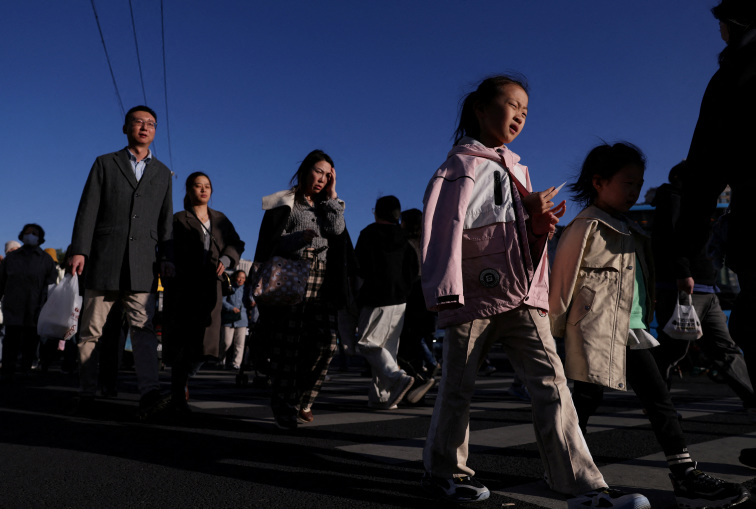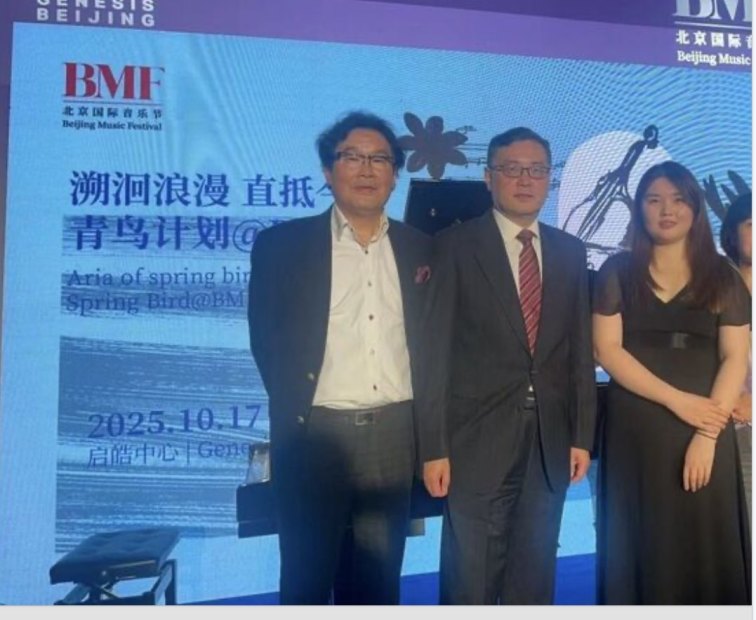Chinese President Xi Jinping arrives in Moscow ahead of Victory Day celebrations
[People News] On October 20, the first day of the CCP’s Fourth Plenary Session, articles published on the regime’s official website appeared to intentionally steer public focus toward the “15th Five-Year Plan.” Yet clearly, outside observers were far more concerned about shifts within the CCP’s top leadership—especially whether Xi Jinping would at least relinquish his titles as Chairman of the Central Military Commission and General Secretary, and who might replace him. Since little is publicly known about the internal situation, we must start with the signals released by the authorities before the session began.
After the CCP military expelled nine of Xi’s trusted generals, including He Weidong and Miao Hua, on grounds of “corruption,” the PLA’s official newspaper deliberately distanced Xi from them. Meanwhile, a few days earlier, at a so-called “Nangliang Spirit” symposium in Gansu attended by Xi’s younger brother Xi Yuanping, officials again downplayed their father Xi Zhongxun’s legacy—his name did not even appear in the news coverage of Xi Yuanping’s speech. Such signals are clearly out of the ordinary.
Moreover, the author noticed that on October 17, CCTV omitted one piece of news that flattered Xi Jinping.
On October 16, Xi not only sent a reply letter to all teachers and students of China Agricultural University on its 120th anniversary but also, for the first time, sent a congratulatory message to the United Nations Food and Agriculture Organization (FAO) on its 80th anniversary. Both items were reported by CCTV that day.
On October 17, CCTV aired a follow-up about reactions to Xi’s letter to the Agricultural University, saying it “inspired the vast number of students and agricultural educators and researchers to strengthen agriculture and serve the nation.” Interestingly, the relatively short CCTV report did not excessively praise Xi; it mainly mentioned the university’s achievements and said Xi’s encouragement had become “a great source of motivation” for them.
By contrast, Xinhua’s corresponding report was filled with flattering quotes from university leaders, teachers, and students. For instance, the vice president of the university said Xi’s letter was “profoundly insightful and inspiring, a high-level recognition of the university’s 120-year dedication to agriculture and its service to the nation’s key interests, providing clear direction for the university’s future development.” None of these praise-filled remarks appeared in the CCTV broadcast.
Even more strikingly, on October 17, CCTV deliberately skipped another report—about the “warm reactions” supposedly sparked by Xi’s congratulatory message to the FAO—while Xinhua continued to feature interviews with several foreigners, including the FAO’s Assistant Director-General, to trumpet the “tremendous impact” of Xi’s letter. CCTV again did not broadcast this story on October 18.
That CCTV is toning down its coverage of Xi, rather than echoing Xinhua’s praise, indicates that the two CCP propaganda outlets are not in sync. Why? The author speculates that amid the shifting balance of power within the CCP’s upper ranks, the different tones may reflect the agendas of the factions controlling them. Xinhua is likely still under the control of Xi’s ally Cai Qi, who oversees propaganda work, while CCTV is more likely influenced by party elders or by Zhang Youxia—after all, television has a wider reach and stronger impact than print media.
Why would party elders intentionally dilute or cut Xi’s agricultural-related flattery? One possible reason is to create, ahead of the plenary session, an impression that Hu Chunhua is being promoted.
Since Xi’s reported stroke during last year’s Third Plenary Session, rumors and signs of him losing his party and military authority have steadily increased. Hu Chunhua—once designated by Hu Jintao as a successor—has in the past year shifted from a low profile after the 20th Party Congress to becoming increasingly prominent, traveling abroad and attending key meetings, especially conducting multiple research trips on agriculture. During his time as vice premier, he oversaw “agriculture, rural areas, and farmers” (the “three rurals”) for many years.
For example, on October 14 this year, members of the National Committee of the Chinese People’s Political Consultative Conference (CPPCC) visited the Chinese Academy of Agricultural Sciences for study and research. Politburo Standing Committee member and CPPCC Chairman Wang Huning attended, accompanied by Vice Chairmen including Hu Chunhua. The importance of science and technology to agriculture needs no elaboration.
From October 9 to 13, Hu led a CPPCC delegation to Xinjiang to investigate “consolidating and expanding achievements in poverty alleviation and improving sustainable rural development mechanisms.” Analysts noted that this was likely preparation for next year’s No. 1 Central Document, the annual policy blueprint for agriculture and rural development issued by the CCP Central Committee and the State Council.
From September 9 to 12, Hu led another CPPCC agricultural delegation to Sichuan Province to conduct field research on “consolidating and improving the basic rural management system.”
Hu’s focus on issues fundamental to the CCP’s governance naturally fuels speculation that he could replace Xi in some capacity. For Xi’s faction, such rumors are unfavorable. Thus, Xi’s sudden letters to China Agricultural University and the FAO may not be mere gestures of goodwill—they may have ulterior motives, which party elders likely recognized. Otherwise, flattering news about Xi would not have been omitted from CCTV.
The divergence between CCTV and Xinhua may indirectly reflect the unsettled state of the Fourth Plenary Session—and possibly hint at an impending leadership transition at the top.
(People News exclusive) △











News magazine bootstrap themes!
I like this themes, fast loading and look profesional
Thank you Carlos!
You're welcome!
Please support me with give positive rating!
Yes Sure!